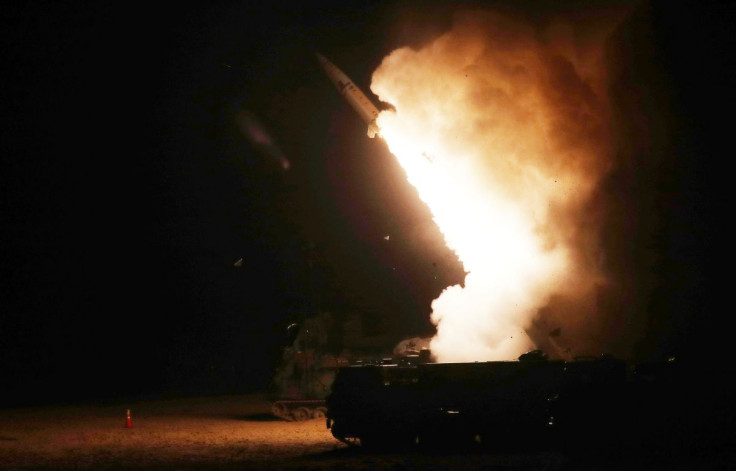South Korea's 'Reply' To Kim Leaves Seoul Red-Faced As Missile Blows Up And Creates Panic

Amid mounting tensions over North Korea's weapon tests, a missile malfunction and crash during a joint U.S.-South Korea show-of-force live-fire drill have left residents of South Korea's coastal city of Gangneung in panic, and Seoul red-faced.
A South Korean short-range Hyunmoo-2 ballistic missile malfunctioned and crashed into the ground after an abnormal flight Wednesday during a live-fire drill inside an air force base in the outskirts of Gangneung, causing confusion and panic among residents of the city. Reportedly, no one was hurt in the incident.
The incident, however, comes as a major embarrassment for South Korea, which has pitted the Hyunmoo range of ballistic missiles with a range of 86-500 miles (300 to 800 km), as critical elements in the country's "Kill Chain" (preemptive strike) and "Korea Massive Punishment and Retaliation," or KMPR, (retaliatory strike) defense strategies.
According to Associated Press, the sound of the blast and subsequent fire led residents of the city to believe that it could be an attack by North Korea, which has been carrying out provocative missile tests in the past days.
Concerns among the residents grew as internet users raised alarm about the blast in social media posts and the military failed to provide an explanation for hours.
South Korea's military later apologized for the failed missile test and confirmed that the warhead of the missile didn't explode, reports Reuters.
According to reports, fire and emergency workers were dispatched to the air force base and a nearby army base in response to the possible explosion. However, they were sent back by military officials.
South Korea and the U.S. conducted missile drills in response to North Korea's launch of a ballistic missile Tuesday.
North Korea test-fired an intermediate-range ballistic missile (IRBM) farther than ever before, sending it over Japan for the first time in five years and prompting fear and a warning for residents there to take cover.
Reports say it was the first North Korean missile — a variant of the Hwasong-12 IRBM — to follow a trajectory over Japan since 2017. The estimated flight distance of 2,850 miles (4,600 km) is the longest for a North Korean missile test. Security officials believe the Hwasong-12 IRBM is part of North Korea's plan to strike the U.S. military bases in Guam.
In response, South Korean and American troops launched four Army Tactical Missile Systems surface-to-surface missiles that can fly around 200 miles (320 km) off the east coast of the Korean Peninsula on Wednesday morning. Another Hyumoo-2 missile was also successfully fired. Earlier, the allies carried out a bombing drill with fighter jets in the Yellow Sea.
Meanwhile, President Joe Biden and Japanese Prime Minister Fumio Kishida condemned North Korea's missile test in the "strongest terms." Following a phone call with President Biden, the Japanese Prime Minister said North Korea's latest launch posed "a grave challenge to peace and the stability of Japan, the region and the international community."
The E.U. called the test a "reckless and deliberately provocative action", and U.N Secretary-General António Guterres condemned the launch saying it was a violation of Security Council resolutions.
The U.S. Britain, France, Albania, Norway and Ireland have called for an emergency meeting of the U.N. Security Council over the latest North Korean launch. However, China and Russia told council counterparts they are opposed to a public meeting, arguing that the reaction of the council should be conducive to easing the situation on the Korean Peninsula.
In an effort to accelerate its arms development program, North Korea has fired nearly 40 ballistic missiles this year. Pyongyang had last month passed a law declaring the country to be a nuclear weapon state, with leader Kim Jong-un ruling out the possibility of denuclearization talks. Recent reports said that North Korea has readied an underground nuclear test tunnel at its Punggye-ri site, to conduct its seven nuclear tests.





















